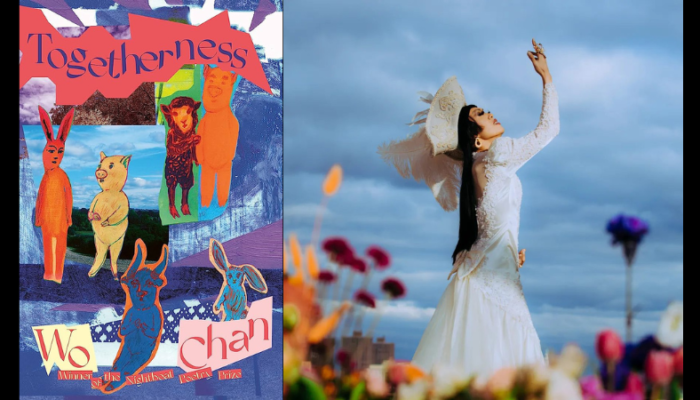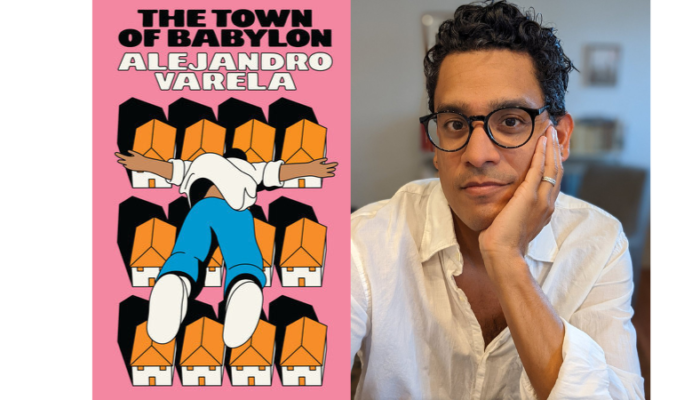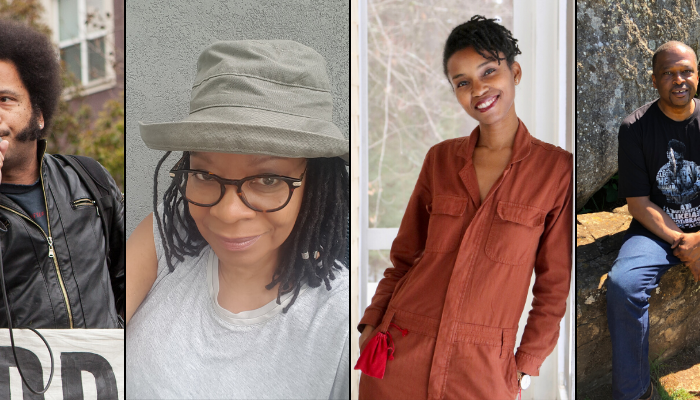By Zinzi Clemmons, Managing Editor
I am nearing my last day of a month-long writing residency in rural Nebraska. I have spent the time on a farm with a handful of other artists—visual, performing and literary artists, like myself—creating and fending against the elements in a place with dirt roads, where the blocks are one mile long, and there is nothing but cornfields as far as the eye can see, and (of course) no cell phone service. The population of the town I’m in is in the hundreds.
There are a handful of larger towns (populations in the low thousands), all a half-hour away, where we go to buy groceries and supplies. We venture into each town either in other residents’ cars, or in the beat-up wood-paneled Chrysler station wagon affectionately named Woody, that lacks power steering or turn signals. We signal by gesturing with our arms out the windows to passing cars.
In our jaunts into the surrounding towns, we stand out. We are mostly from cities—from the East Coast, Midwest, and even Asia. We dress eclectically, like artists. We are also a racially and nationally diverse group, one of my favorite features of this particular residency. In my group, out of around a dozen residents, there have been a majority of women; some Asian, Hispanic, and (myself) African-American.
This was my first trip to the Midwest, and what has surprised me is the friendliness of the people here. Whenever I pass someone in the grocery store, or hold the door for someone, they greet me heartily. “Hi, how are you?” they say with genuine enthusiasm. A hardened East Coast city-dweller, this scared me at first, thinking people took me as some kind of curiosity—as I often am seen—because of my ambiguous ethnic looks (I am mixed-race). But over time I realized that people weren’t just reacting to me, they treated everyone this way. It’s comforting to me now, an antidote to the freezing weather and featureless landscape, this dependable warmth I’ve come to expect from strangers.
Perhaps it was this warmth that led me to discount the occasional yard sign or bumper sticker that read, “Abortion is Murder”, or the confederate flag taped up unashamedly in a window in the center of town.
But this I could not ignore: On our last visit to the friendly supermarket we often frequent, where the produce woman saved me a box of bruised vegetables that I could buy for only a dollar; as I stood in the check-out aisle, I saw two magazines covered with a piece of black plastic, as you often see covering Playboy or Penthouse at the magazine stand. I lifted the first cover, and to my surprise, it was Cosmopolitan, with a picture of Miranda Kerr on the cover, revealingly but fully dressed in jeans and a midriff bustier that displayed her cleavage. Odd, I thought. Then I lifted the other cover, and there was a copy of Glamour, with Rihanna in short hair and the most clothes she has probably ever worn in her career.
I thought about asking one of the nice blond-haired female clerks what the reason was for this, but I hesitated, and realized that I knew the answer. The statement was clear: this supermarket found a woman’s body, and a black woman unsuitable for its viewer’s eyes. There was no underlying reason that could make this act any more acceptable.
I thought about asking anyway, thinking the act of questioning could be powerful in itself. But I realized that I didn’t want to dive into ugliness. Any discussion would require an acknowledgment of unsavory politics, and quite possibly admissions of much worse.
Instead, I said nothing, and paid for my groceries and made pleasant small talk with the checkout clerk. I made a decision to skate along on the polite surface of the town, which I have held to until these, the last days of my stay.





